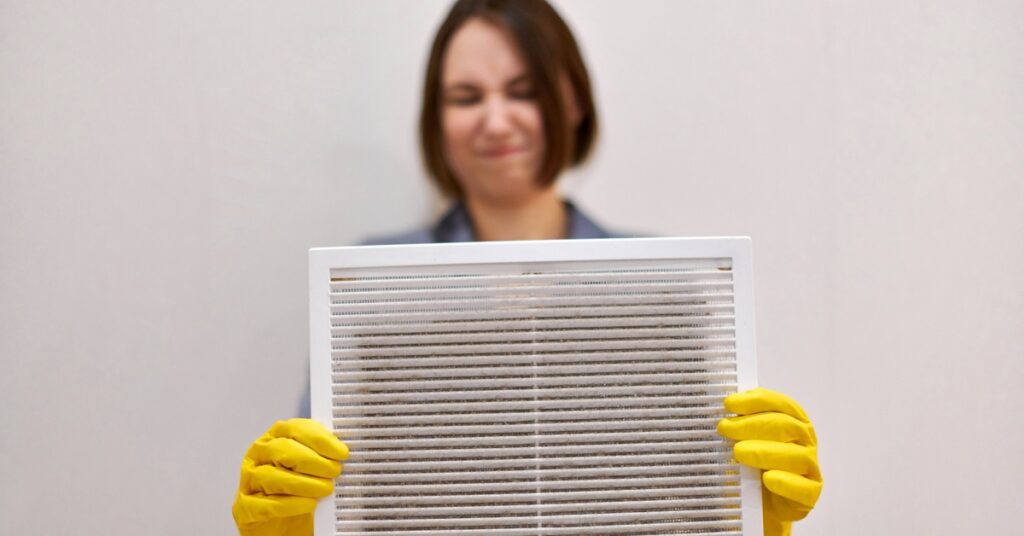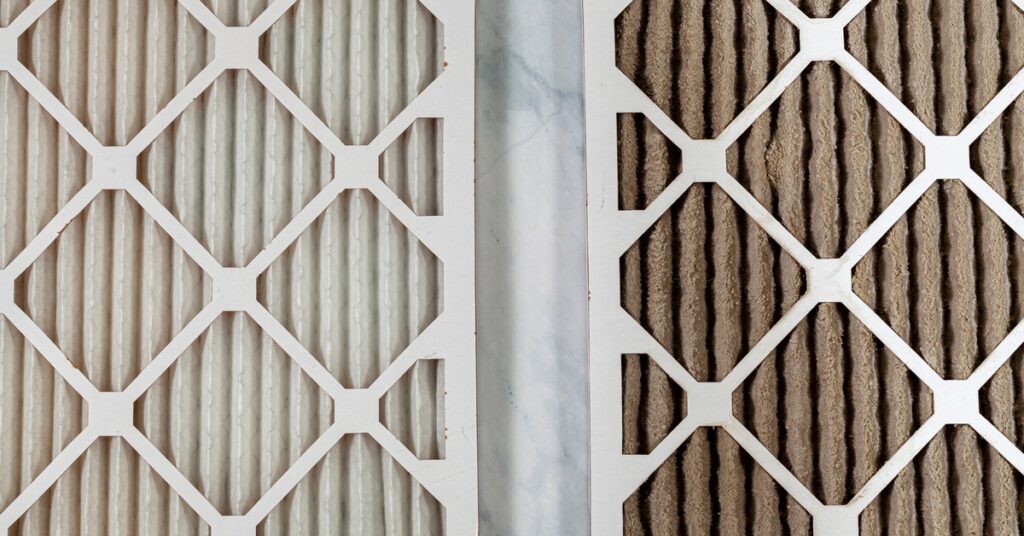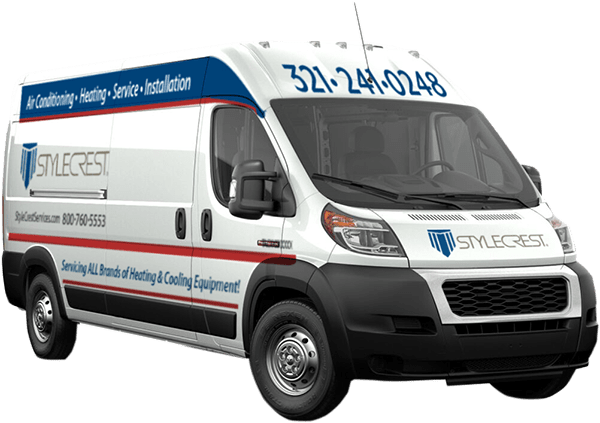Your HVAC system uses air filters to keep your home’s air clean and free of dust, allergens, and other contaminants. These filters help improve your home’s air quality by trapping pollutants captured when air circulates through the system. Poorly maintained air filters can lead to reduced airflow, higher utility costs, and compromised air quality.
Read on to learn what happens if you don’t replace your home’s air filters and how to properly care for your HVAC system’s filters.
What Do Filters Do?
Air filters capture airborne particles such as dust, debris, and allergens as air passes through an HVAC system. By trapping these contaminants, filters prevent harmful particles from recirculating throughout your home. This process not only preserves indoor air quality but also contributes to a healthier living environment for residents.
Filters also play an essential role in maintaining the mechanical integrity of HVAC systems. By keeping dust and debris out of the internal components, they prevent clogs, which could damage them.
Air Filters Aren’t Air Purifiers
While your HVAC’s air filter helps trap dirt and particles, it doesn’t function the same way as an air purifier. Manufacturers make air purifiers to remove smaller particles from the air, such as allergens and bacteria. On the other hand, your HVAC system primarily works to heat or cool your home but can help remove some particles from the air.
The Risks of Dirty Air Filters
Your air filters are a key area of the HVAC system and maintaining them regularly can save you money and hassle in the long run. By forgetting to replace your air filters, you risk:
- Poor airflow throughout the home
- Overworked HVAC systems
- Expensive utility bills
- Poor air quality
All these problems can lead to increased utility costs, expensive repairs or replacements, and reduced comfort in your home. Below, we’ve discussed these risks in detail to keep your HVAC system running smoothly.
Poor Airflow Throughout the Home

Restricted airflow leads to uneven air distribution in your home, making certain areas hot while others are cold. This can quickly become frustrating due to the inconsistencies in your living environment. Addressing filter issues ensures more consistent airflow and a more comfortable home.
Moreover, when airflow is limited, the system struggles to regulate temperatures efficiently, causing discomfort in both cooling and heating seasons. At its worst, poor regulation can undermine the system’s primary function of offering consistent indoor climate control.
Overworked HVAC System
When filters become clogged, HVAC systems must work harder to push air through the blockages. This increased workload places undue stress on the system, which can lead to some parts breaking down prematurely.
For example, a clogged filter increases the chances of overheating or system malfunctions, which require costly repairs. Specific components, such as the fan motor, may also become overworked and burn out due to increased strain.
The prolonged use of clogged filters continuously works the HVAC system, shortening its lifespan. If the appliance doesn’t completely break down, you may still have to schedule repairs more often than you’d like, which can get expensive.
Expensive Utility Bills
Dirty air filters increase your HVAC’s energy consumption, resulting in a more expensive utility bill. This is mainly because the system works harder than it should to cool your home, which translates to more power.
Moreover, clogged filters restrict airflow, creating imbalances in the system’s air pressure. This imbalance means that your HVAC system has to work harder to maintain a consistent temperature throughout the home. The result is increased energy consumption and more money spent on utility bills.
Poor Air Quality
Your HVAC system’s air filters aren’t the same as air purifiers, but they help capture particles and improve indoor air quality. However, when these filters become clogged, they can no longer effectively trap contaminants, leading to poor air quality in your home. This is especially problematic for individuals with allergies or respiratory issues. Additionally, dirty filters can become a breeding ground for bacteria and mold, which can circulate through the home and cause health problems for residents.
Pro Tip
Check your energy bills for any spikes. If your heating and cooling costs suddenly spike, inspect your HVAC system filters. You can also call an HVAC tech to inspect your system and verify that all the components work properly. Research has shown that a well-maintained system can save up to 10% on monthly electricity bills.
How Often Should You Replace Air Filters?
Knowing what happens if you don’t replace your home’s air filters is only half of the equation. You should also note how often to replace them. HVAC systems often come with manufacturer recommendations for filter maintenance. Most HVAC experts recommend replacing your air filter every three to six months, but this frequency can vary based on a variety of factors.
The size of your home and the number of occupants affect how quickly filters become clogged. Larger households produce more airborne particles due to increased activity and dust accumulation. Likewise, homes with pets experience even faster filter clogging as dander and fur contribute significantly to the airborne particles that filter capture.
Pro Tip
Avoid changing your air filters too often, as this can waste money and is less effective. A fresh filter isn’t as efficient as a slightly used filter, and the increased airflow can kick up additional dust in your home.
Signs You Need To Replace Your Filters

Three to six months is a wide period of time, and knowing when to change the filter can be unclear. You should be able to easily remove the filter to check it, then slide it back in if you don’t need to change it. As you inspect the filter, look for clear signs of replacement, such as:
- Clogging: Check for visible dirt, dust, debris, or pet fur
- Odors: Your home or the filter may smee musty or stale
- Increased energy consumption: Check energy bills for sudden spikes
- Mold growth: Filters exposed to moisture can develop mold
Once you replace the filter, mark it on your calendar and take three months from that date to check your filter for a replacement. If the filter isn’t dirty when you check it, put it back and look at it again in another month.
Contact Us
Style Crest offers HVAC services in Lake City, FL; Houston, TX; and Fort Worth, TX. We can inspect your unit for damage or help to maintain it. Contact our team today to schedule an appointment and ensure your HVAC system runs efficiently and effectively.


